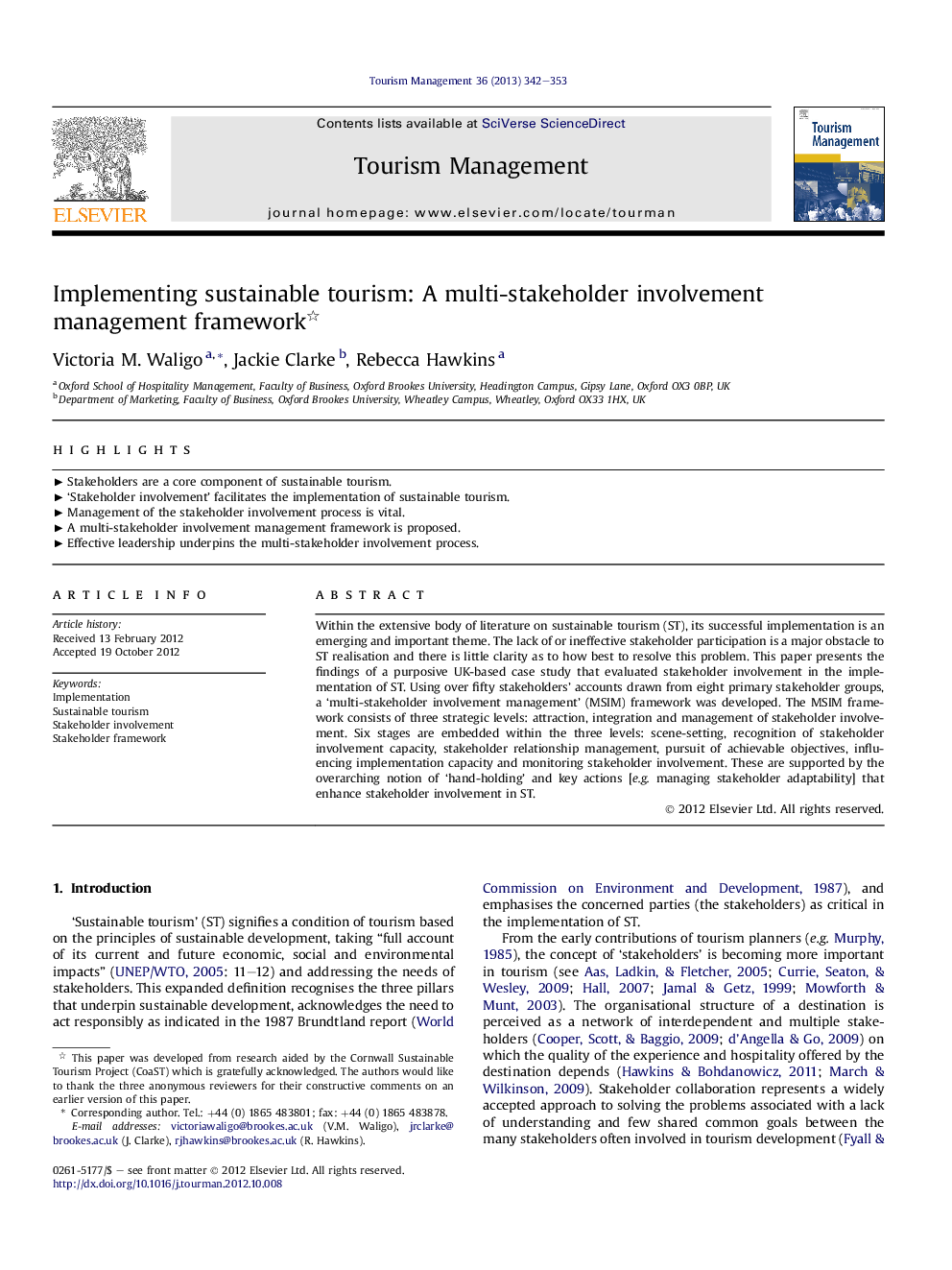| Article ID | Journal | Published Year | Pages | File Type |
|---|---|---|---|---|
| 1012294 | Tourism Management | 2013 | 12 Pages |
Within the extensive body of literature on sustainable tourism (ST), its successful implementation is an emerging and important theme. The lack of or ineffective stakeholder participation is a major obstacle to ST realisation and there is little clarity as to how best to resolve this problem. This paper presents the findings of a purposive UK-based case study that evaluated stakeholder involvement in the implementation of ST. Using over fifty stakeholders' accounts drawn from eight primary stakeholder groups, a ‘multi-stakeholder involvement management’ (MSIM) framework was developed. The MSIM framework consists of three strategic levels: attraction, integration and management of stakeholder involvement. Six stages are embedded within the three levels: scene-setting, recognition of stakeholder involvement capacity, stakeholder relationship management, pursuit of achievable objectives, influencing implementation capacity and monitoring stakeholder involvement. These are supported by the overarching notion of ‘hand-holding’ and key actions [e.g. managing stakeholder adaptability] that enhance stakeholder involvement in ST.
► Stakeholders are a core component of sustainable tourism. ► ‘Stakeholder involvement’ facilitates the implementation of sustainable tourism. ► Management of the stakeholder involvement process is vital. ► A multi-stakeholder involvement management framework is proposed. ► Effective leadership underpins the multi-stakeholder involvement process.
